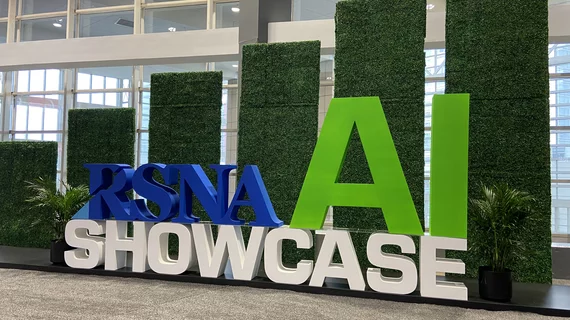RSNA21: Deep learning automatically labels coronary arteries to produce structured CCTA reports
A novel deep learning tool can automatically label coronary arteries in accordance with established guidelines to help structure radiologists’ CT angiography reports, according to research presented during the RSNA annual meeting.
CCTA has advanced to become the current standard for assessing coronary artery disease and is recommended by the Society of Cardiovascular Computed Tomography (SCCT) as the first-line test for patients with possible CAD.
Although pinpointing the location of lesions can help predict the risk of major adverse cardiovascular events or mortality, doing so is “time-consuming, laborious and susceptible to interpreter errors,” Verena Brandt, MD, with the Medical University of South Carolina, said Thursday.
So, Brandt and colleagues gathered a group of 104 patients with suspected CAD who had received ECG-gated CCTA in an effort to evaluate a new deep learning-based algorithm.
Two expert readers automatically extracted coronary centerline trees from the images, labeled and validated the data. The algorithm was trained on 706 total cases to automatically label artery centerlines according to SCCT guidelines.
The software identified nearly 1,500 coronary segments, labeling arteries with a diagnostic accuracy of 94.4%, Brandt reported, adding that each case took less than 1 second.
Given their findings, Brandt believes the algorithm can enhance automated, structured reporting for CCTA exams while also reducing physicians’ imaging workloads. She noted the tool can only be used with “normal” heart anatomy but the group is working to investigate its accuracy for coronary anomalies.
“In conclusion, the deep learning-based coronary artery labeling algorithm provides fast and precise labeling of the coronary artery segments according to SCCT guidelines,” Brandt explained.

